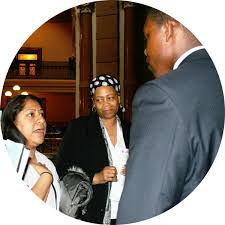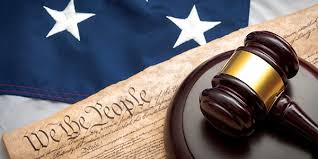About Us
Pro Se Litigation Alliance
- We Are Not Attorney's, but we want to spread our message of hope and need for assistance in legal matters. We believe that a single action can make a difference in the community, and that collective action can greatly impact this criminal justice system. Through advocacy, outreach, counseling and seminars, our team works tirelessly each day to contribute their part to the greater good.
Pro Se Litigation Alliance's mission is to educate communities on the basics of the legal system, representing themselves (Pro Se) in criminal, civil and family court, as well as be a voice to assist in the reduction of the staggering number of innocent people who remain incarcerated, and to bring reform to the system responsible for their unjust imprisonment.
"I submit that an individual who breaks a law that conscience tells him is unjust, and who willingly accepts the penalty of imprisonment in order to arouse the conscience of the community over its injustice, is in reality expressing the highest respect for law."
Martin Luther King, Jr.
WE ARE NOT LAWYERS
Disclaimer:
Pro Se Litigation Alliance's officers, directors, program directors and litigation specialist are not attorney's. We share our knowledge, expertise, experience with the communities we serve.
Pro Se Litigation Alliance
educates our affiliates and members on how to represent themselves in court, share general information and articles, as well as refer them to professionals who can consult with them.
Pro Se Litigation Alliance
do not represent anyone in court or render legal advice on the law or on their case.
Pro Se Litigation Alliance
provide a service to educate our communities through seminars, training, blogs, articles and newsletters. Our affiliates and members use of the seminars, training, blogs, articles and newsletters obtain from this site is at their own risk. Our affiliates and members are responsible to verify case law and other information that is obtained from this site or other members affiliated with Pro Se Litigation Alliance.
Pro Se Litigation Alliance
and its affiliates and members will not be liable for any damages, losses or causes of action of any nature arising from any use of information obtained from its seminars, training, blogs, articles and newsletters obtained from this website.

Our Roots
Here at Pro Se Litigation Alliance, we know that sometimes all it takes to change the world is a little support. Since our founding in 2017, we have been determined to make an impact. The core of our efforts is to bring our team’s fresh ideas and passion to the range of activities we’re involved in. Through all of our endeavors we hope to display the conviction behind our beliefs.
We find our foundation in Luke 4:18 (NLT) "The Spirit of the Lord God is upon me, for he has anointed me to bring Good News to the poor. He sent me to proclaim that captives will be released, that the blind will see, that the oppressed will be set free".
Pro Se History
"Every Man Is His Own Lawyer"
How often we hear, "He who represents himself has a fool for a client." But, many times, the reality has become, "He who is represented is usually taken for a fool."
Read some of our history regarding self-representation.
Almost 400 years ago, the great American democratic experiment began. Almost from the first day--and despite the contrary views of a succession of English monarchs--it assumed that an educated citizenry had no need of lawyers to write its laws or solve its disputes.
Lawyers were actually banned outright or faced tight restrictions in many colonies for much of the 18th century. Especially in Puritan New England, Quaker communities in Pennsylvania and Dutch settlements in New York, colonists firmly believed that disputes were best solved within the community, often by church-sponsored mediation.
The "Body of Liberties" adopted by the Massachusetts Bay Colony in 1641 expressed the typical attitudes of the time:
"Every man that finds himself unfit to plead his own cause in any court shall have liberty to employ any man ..., provided he give him no fee or reward for his pain."
In the late 17th and early 18th centuries, after English kings reasserted direct political authority over the colonies, England's common law system--complete with courts, juries and lawyers--crossed the ocean. Even so, most citizens did not rely on lawyers for legal information.
Historian Eldon Revere James found that between 1687 and 1788, not a single legal treatise intended for lawyers was published in America. During that period, all the legal treatises were for laymen.
One of the most popular self-help law books of the time, Every Man His Own Lawyer, published in London, was already in its ninth edition in 1784. Another, Every Man His Own Attorney, by Thomas Wooler (1845), which apparently was widely and effectively used for many years, contains a lament that could have been penned yesterday:
"Much has been recently done, to simplify ... practice in the courts; something has been gained in point of expedition; but little, if anything, in the reduction of the expense ... Useless proceedings are still required, apparently for no other purpose than to extract money from pockets of the unfortunate suitors. Forms, the pretenses for which have been long exploded, are pertinaciously adhered to ... and while this is the case, legal proceedings will remain characterized by an uncertainty of result, a loss of time, and a ruinous expense, which should induce everyone to learn as effectually as possible to guard against a seduction into its labyrinths, or, if entangled in them, to make the most easy and expeditious escape."
The strong tradition that each American should be able to master the laws probably peaked in the years between Andrew Jackson's inauguration in 1825 and Abraham Lincoln's death in 1865. Most states enforced few if any restrictions on non-lawyers appearing in court on behalf of others--as Lincoln himself did before he talked a judge into granting him attorney status.
Given America's long tradition of discouraging lawyers, it's surprising that in the 20th century the legal profession so successfully sold Americans on its favorite public relations slogan, "A man who represents himself has a fool for a client." And it's even more surprising that without great opposition, the American Bar Association convinced states to pass "unauthorized practice of law" statutes in the 1920s and 1930s, which effectively gave lawyers a monopoly over the sale of legal information.
It is less surprising--at least to everyone who isn't an attorney--that in the last two decades many Americans - battered women, small business people, landlords, inventors and disenfranchised fathers, to mention just a few--have begun to assert their historical and constitutional right to participate in the legal decisions that affect their lives.
Unfortunately, the Bar, despite the fact that its leaders concede that at least 100 million Americans can't afford lawyers, continues to resist this powerful democratic trend.
The fact that lawyers won't voluntarily relinquish their legal monopoly goes far to explain why the profession is ridiculed by so many Americans.





